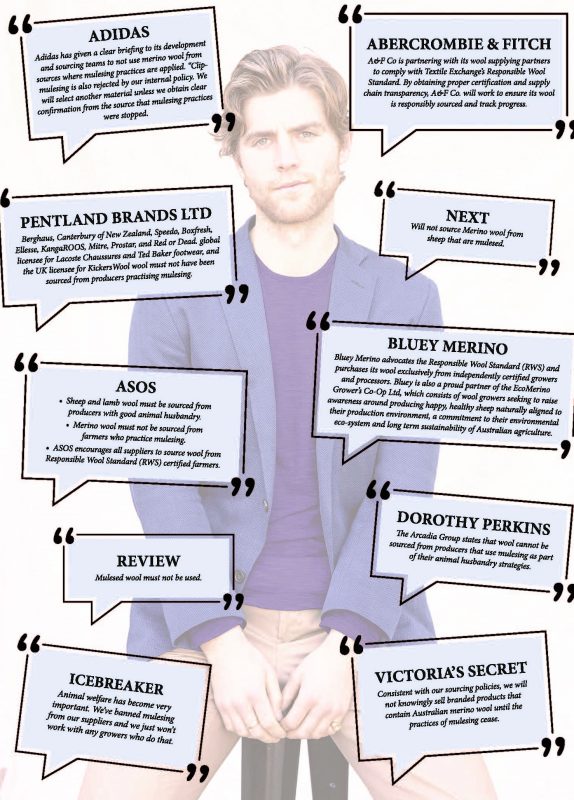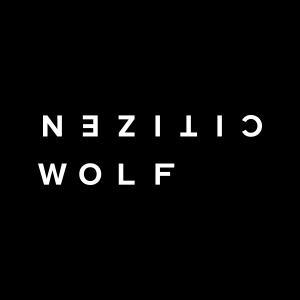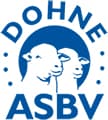Mulesing Gets the Slice with 180+ Global Fashion Brands Opposing the Practice
Dohnes – ‘The NATURAL bare-breech sheep breed with quality Merino wool’.
100% natural, renewable and biodegradable, wrinkle-resistant, naturally breathable, body temperature regulating, odour and stain-resistant to UV and fire resistant – there are a multitude of inherent benefits in wool…..BUTT….Consumer awareness about mulesing has become so common that 180 + major global brands have strongly advised the Australian wool industry that they will no longer use wool that comes from mulesed sheep.
A list of powerful fashion stakeholders is further evidence that Australia’s wool industry must listen to their customers and prepare for a non-mulesed future, or risk being left behind.
Outdoor brands like Patagonia, Ortovox and Kathmandu are already completely mulesed-free certified, and therefore leading with their progress. “At Kathmandu they require suppliers to treat all animals in the supply chain humanely and with respect. Mulesing is inhumane, and we see using mulesed-free wool as a means to recognize and reward farmers for doing the right thing,” Manu Rastogi, Head of Product Innovation and Sustainability at Kathmandu.
With demand for ethical fashion on the rise, the Australian wool industry must work together to make a bold and proactive plan to phase out mulesing, both for the animals and to avoid losing further business to other markets.
Concern from brands specifically about the Australian wool supply chain have been publicised widely throughout global media outlets.
• “Wool from Australia is considered to be the highest risk as the use of surgical mulesing is widespread” – Marks and Spencer, which now sources only New Zealand RWS certified wool.
• “Due to the widespread practice of mulesing sheep in Australia, we don’t use Merino wool sourced from Australia” – New Look Group, UK fashion brand with 500 + stores and ships to 66 countries.
Traceability and certification initiatives like the Responsible Wool Standard (RWS), Authentico, and SustainaWOOL(Gold Level) are increasingly relied upon by brands to help meet animal welfare needs and improve transparency in their supply chains. Consumers wanting to ditch mulesed wool are being encouraged to avoid products where fashion brand policies regarding mulesing status is unclear.
Retailers like H&M and Abercrombie & Fitch, as well as domestic fashion brands such as Witchery and Politix are among those committed to become certified by a credible third party.
• “H&M Group does not tolerate animal abuse, and we only buy from suppliers that guarantee mulesing-free merino wool and aims to ensure that by 2022 all our wool is certified by Responsible wool standard (RWS)” notes Jennie Granstrom, Business expert within Animal welfare, material ethics and Biodiversity, H&M Group.
Citizen Wolf – “Wear Clothes That Matter”
Citizen Wolf re-engineers the way clothes are made at scale to be carbon negative and custom fit to every body.
We aim to have the shortest supply chain in the game, built around three core values: local is best; ethical is mandatory; and true sustainability comes only from on-demand manufacturing.
We never use synthetic fibres for environmental reasons, making Merino Wool a natural choice for our luxurious T-shirts. Naturally biodegradable, perennially renewable and magically odour resistant it is the fabric of choice for our discerning customers who love the planet as much as they love their clothes.
Remaining true to our values, our 150gsm Superfine Merino Wool jersey is knitted in Melbourne and sourced exclusively under the Responsible Wool Standard from certified non-mulesed Aussie sheep.
Our 150g superfine wool jersey pictured on the front cover and page 4 are just some of our garments.
www.citizenwolf.com












 Facebook
Facebook YouTube
YouTube Instagram
Instagram